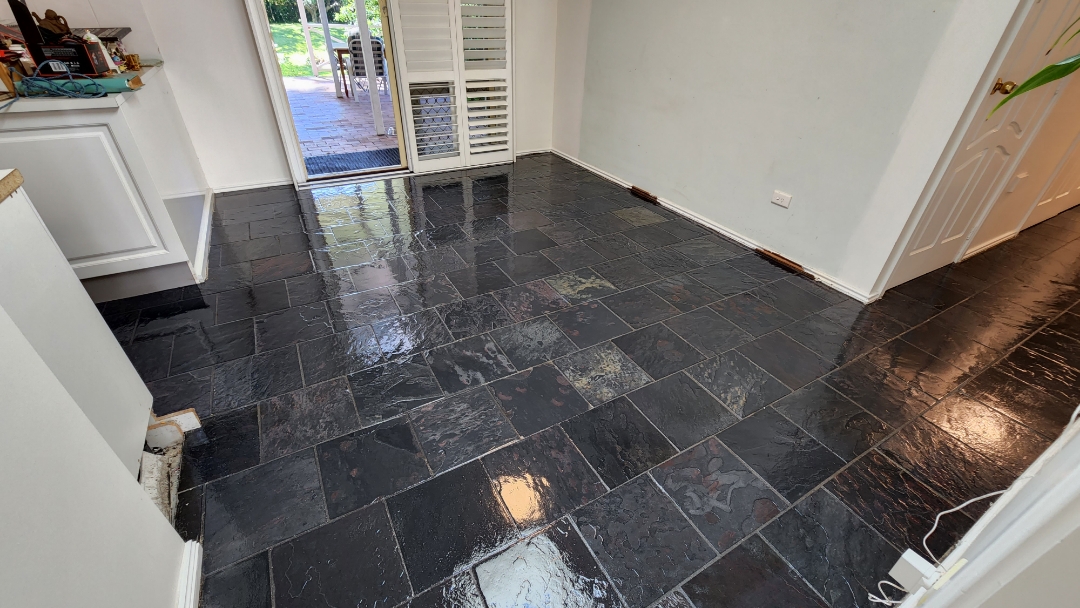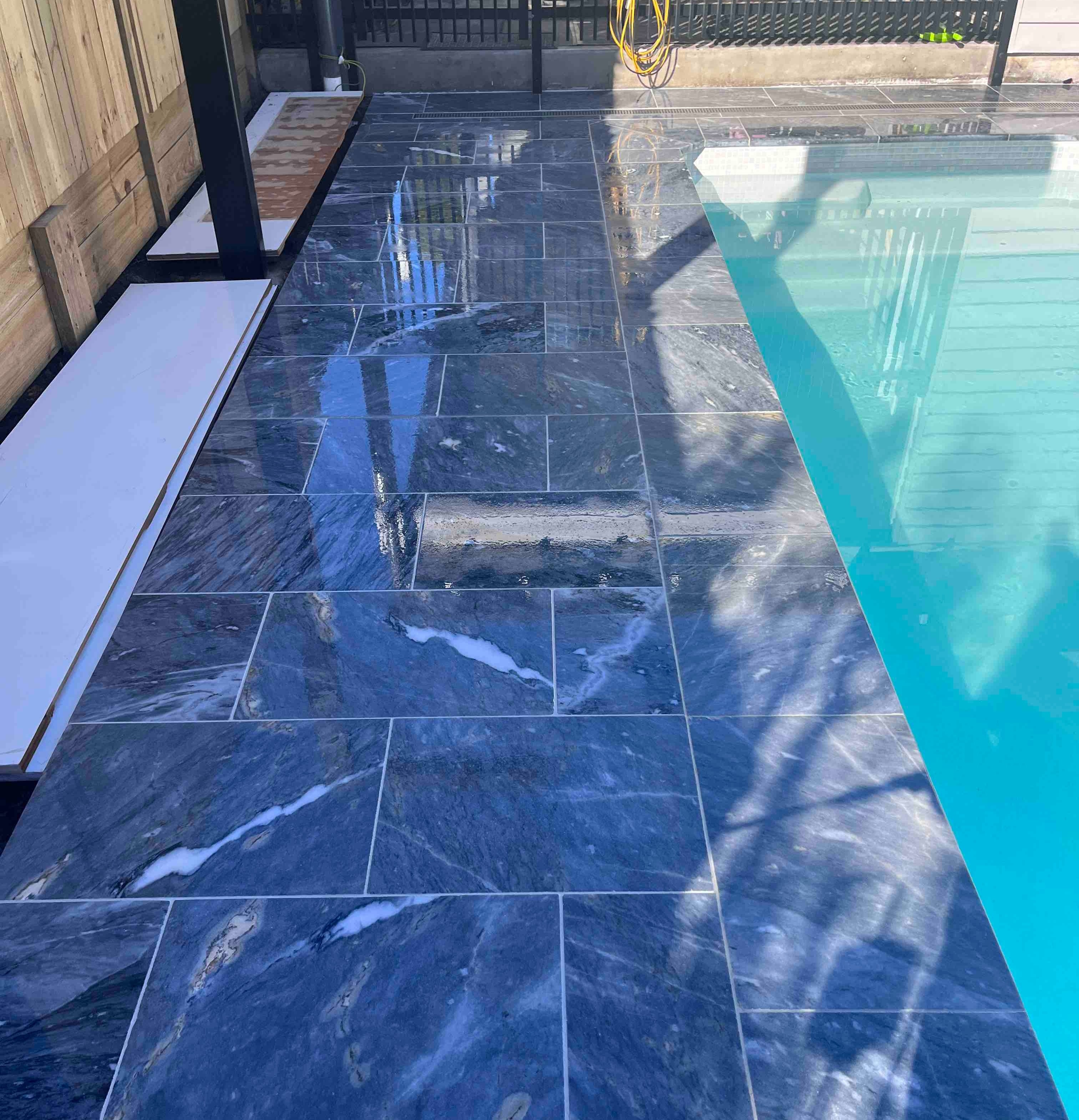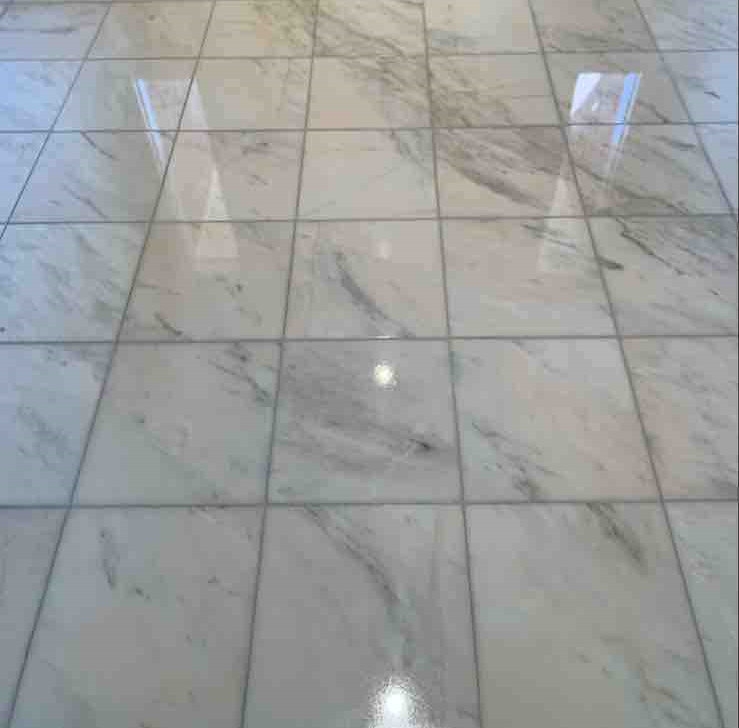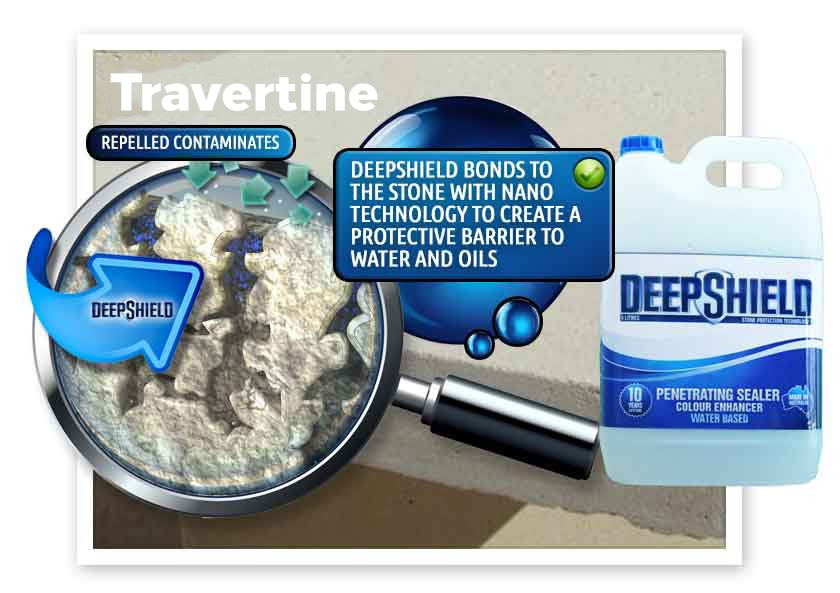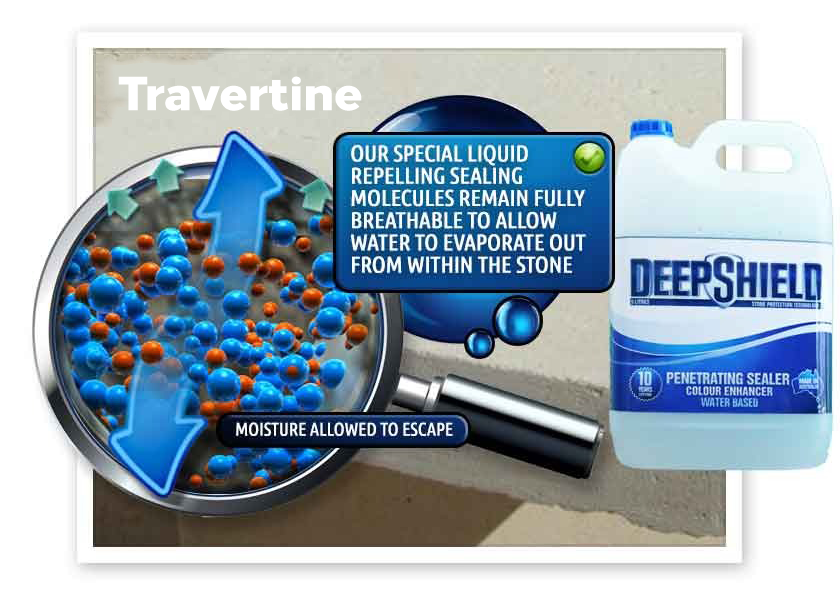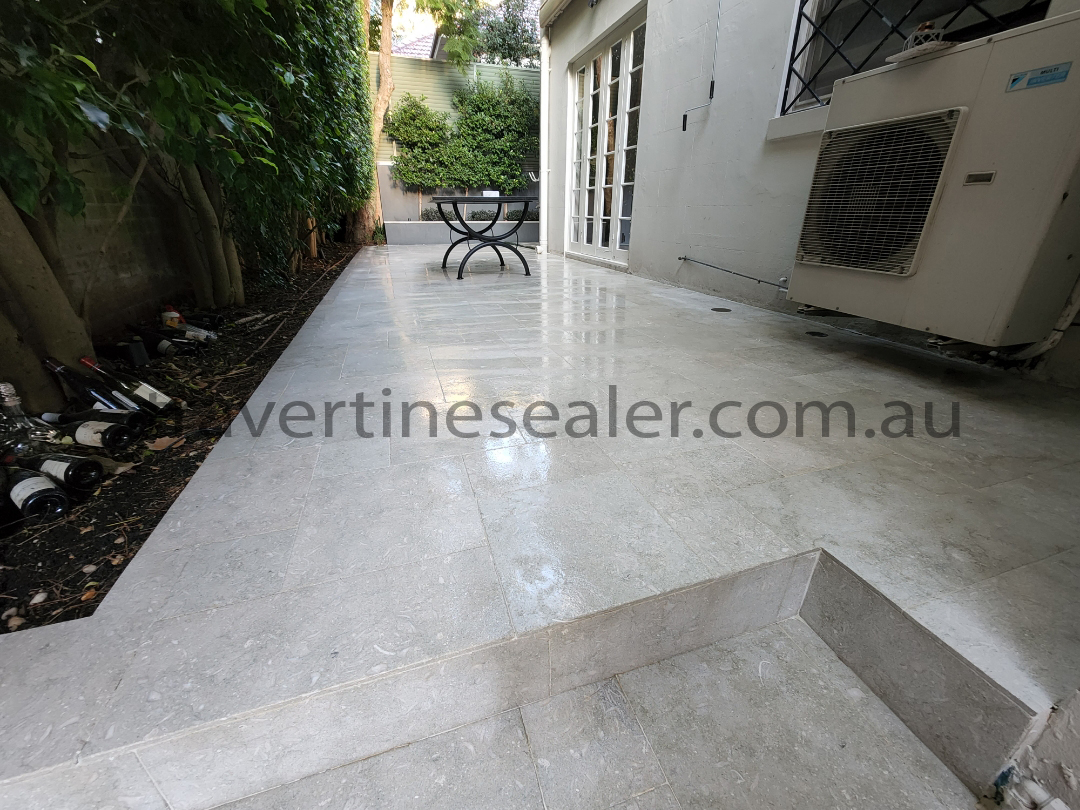Ensuring that your travertine floors are free of dust and sand is essential in Campbell. Debris left on the surface can have a grinding, abrasive effect, leading to scratches and making the stone susceptible to additional damage.
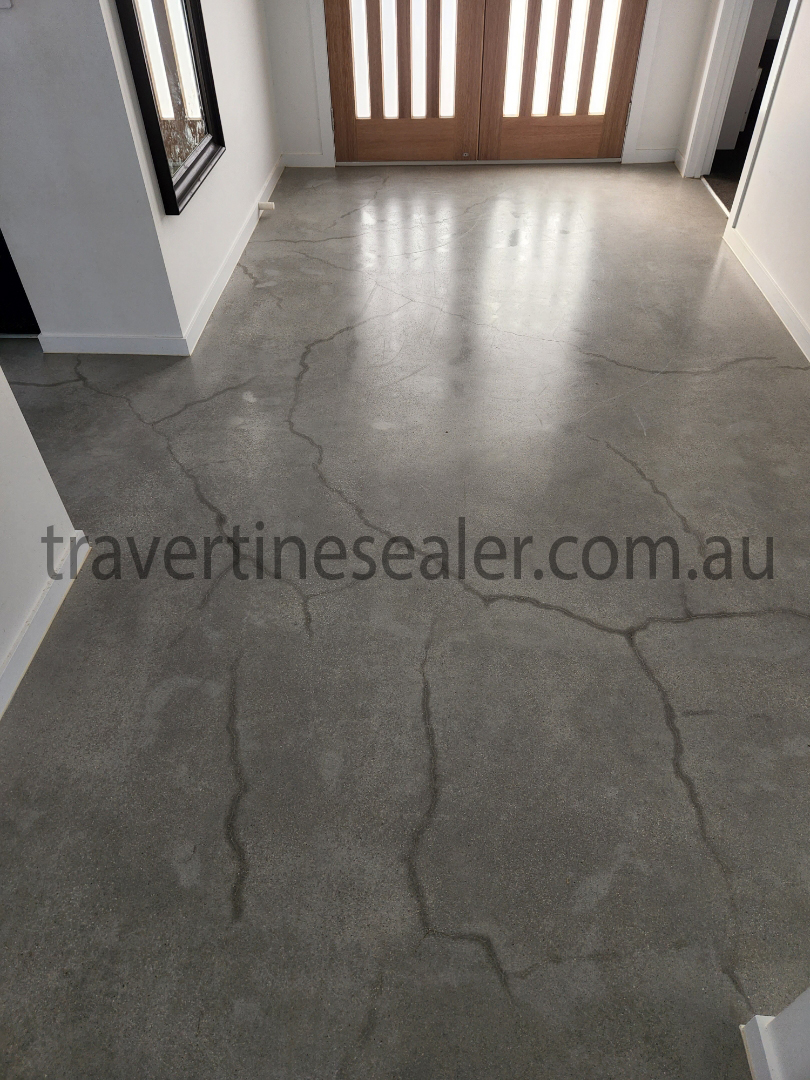
A straightforward approach to reduce the impact of debris causing abrasion is to place barrier matting at entrances to prevent abrasive particles from shoes transferring onto the travertine in Campbell. Additionally, make it a habit to regularly vacuum or sweep the travertine floors in Campbell. When vacuuming, ensure the brush attachment is connected to avoid scratching the surface of the stone.
Periodically clean your travertine floors with lukewarm water in Campbell. Employ a well-wrung microfiber mop and use a minimal amount of water, as excess water can seep into the travertine in Campbell. Ensure to dry the travertine thoroughly after cleaning. Apply only light pressure while mopping. For a more thorough clean, opt for a pH neutral cleaner or an alkaline product specifically formulated for stone.




